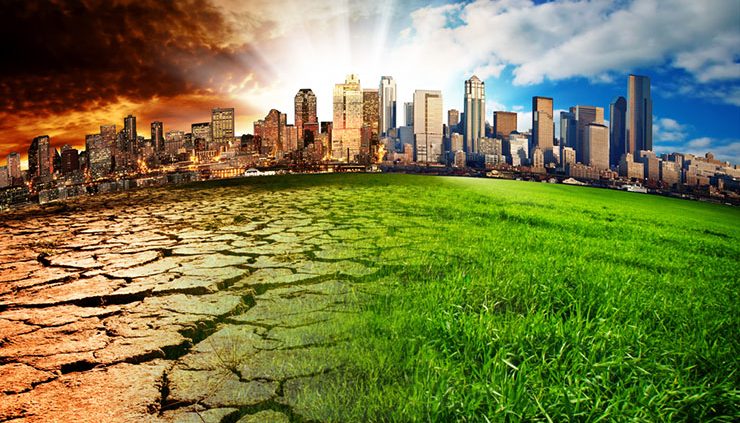
By Peter Makwanya
AS climate change-driven emissions continue to rise posing long-term impacts well-known global emitters try to by-pass regulatory procedures and standards by opting for the concept of business as usual (BAU) while they continue to emit and adapt.
The concept of business as usual as a tool to inform future energy systems ought to be looked like a trajectory worth pursuing although it is littered with sectorial gaps.
In the emission intensive sectors, BAU scenarios are based on assumptions that are built on historical evidence in order to project the outlook of emissions for a period of 10 to 15 years and beyond.
Why not concentrate on doing business emitting now and the future would take care of itself.
Some would argue that while the business as usual approach may sometimes be necessary, it can reduce the emission reduction gains realised so far.
For these reasons, BAU cannot continue to be the regulatory standard of choice because it cannot pass the test as a reliable yardstick for informing future emission scenarios.
One major undoing when analysing emission projections using BAU, is that it can present stakeholders with information gaps and no meaningful mitigation can be realised. Of course there are some changes that may have taken place in between such as solar technologies reducing emissions and to some extent solar cars, among others, not in every country but in some developed and industrialised nations.
- Chamisa under fire over US$120K donation
- Mavhunga puts DeMbare into Chibuku quarterfinals
- Pension funds bet on Cabora Bassa oilfields
- Councils defy govt fire tender directive
Keep Reading
Business as usual has the potential of slowing down climate emergency because life goes on after all despite emissions continuing to surge, the attitude does not change as if nothing is the matter. In this regard, for climate emergency to be realised, it requires prompt interventions and responses.
For this reason, it is difficult to contribute to climate emergency when business as usual is slowing down all the necessary climate actions.
BAU can also be viewed as trajectory which facilitates the mindset that encourages the foregrounding of the thinking that sidelines the environment, a healthy planet and humanitarian concerns, among others. The idea of climate emergency and actions is eroded by ignoring these sustainable pillars which place the human beings, the environment and their health and well-being at the heart of sustainable development.
In the context of business as usual, with reference to those countries which religiously walk the talk, development can still be taking place while disadvantaging developing countries through energy emission inequalities and greenwash. At the same time, the business sector has a strong role of influencing the development of sustainable development goals (SDGs). In this regard, businesses, governments and civil society are expected to pursue a more than business as usual sustainable path and operate beyond the business as usual mantra.
In the right frame of mind, it is the hope of everyone to see businesses being motivated to make contributions through climate-related adaptation plans, achieve resilience and realise SDGs without being suffocated by the BAU phenomenon. In this view, businesses require supportive and enabling environment in order to play a key role in realising business-friendly operating systems to manage ongoing emissions.
Some countries see BAU as the way to go, depending on the nature of their businesses and sectors while others view it as a conduit for accelerating emissions while businesses continue to emit.
In the presence of BAU, carbon emissions continued accelerating rather than slowing down sustainably in order to allow businesses to operate towards regulating and stabilising these ever increasing carbon emissions.
It is also against this business as usual background that stabilised global emissions will still have long-term climate impacts which have since become wide spread and acknowledged matters of global concerns.
Tobacco industry and the fossil fuel sector have also been criticised for concentrating on business as usual models while participating in what they call corporate social responsibility.
This is not sustainable and not the universal truth and ethical considerations that people would want to see because these sectors are linked to the products they produce and sell, not forgetting their operational behaviour too.
While fossil fuel emitting companies try to some extent to show compliance, tobacco companies have proved to have challenges in complying with the minimum corporate social responsibility criterion.
Many tobacco producing countries, instead of cutting down on deforestations have actually destroyed forests without clear and meaningful reafforestation and regeneration in sight.
The other problem with the countries which embraced the BAU approach, the issue of climate change adaptation is viewed as a small question and less topical, where businesses are more concerned with the end product without worrying about the means and also failing to factor in sustainability issues.
Above all, business as usual needs to be transformed so that it gives climate change adaptation more space and prominence.
The essential nature of climate emergency and action is not negotiable and should be accorded the treatment and attention it deserves.
- Peter Makwanya is a climate change communicator. He writes here in his personal capacity and can be contacted at: [email protected]











